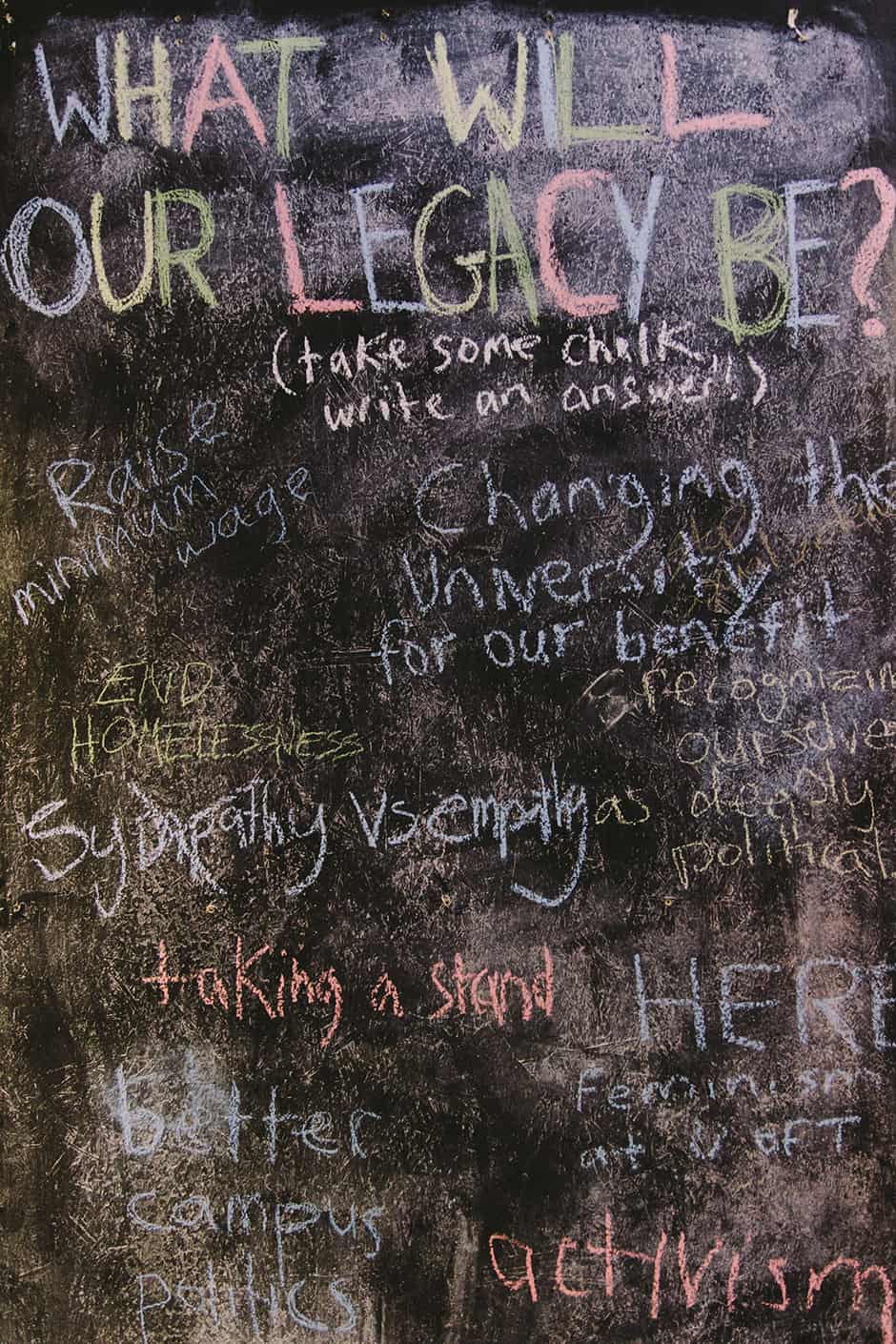“What will your legacy be?”
That was the question facing University of Toronto students last week when Ask Big Questions (ABQ) U of T, a student group that aims to change the world through better conversation, placed large blackboards at campus hotspots, such as Hart House and the Medical Sciences building.
Student responses on the boards varied, ranging from goals such as running a marathon, to learning sign language, or getting a pet ferret.
This semester’s question was aimed at getting students to think about what they are working towards, what they are involved in, and why.
Roslyn Grant, a fellow at ABQ U of T, says that the purpose of the group is to spark discussions on campus between people who may not otherwise cross paths.
According to the group, the big questions are relatable to all people, regardless of background, gender, sexual orientation, religion, or anything else.
ABQ is an initiative that takes place across more than 13 university campuses in North America.
It began accidentally at Northwestern University on a poster board at an event held by Hillel, an international Jewish group, where students were asked what they would do differently this year for an upcoming holiday.
Although ABQ is part of Hillel, it is a secular organization.
ABQ U of T is held on campus once a semester, and has been active at U of T for the past few years.
According to Grant, ABQ U of T puts a lot of thought into the questions that they ask, targeting issues that are specific to U of T and reflect student expression.
Grant says that ABQ is important because it encourages students to define their success beyond just academics and facilitates opportunities for students to take a step back and set other goals.
Although it is a conversation starter, it can also have a meaningful personal impact on students who may personally reflect on the question rather than contribute on the board.
“When you have the experience of engaging, you realize how powerful it is and that people have a lot to contribute,” says Grant.
ABQ U of T has worked in collaboration with other campus groups and initiatives to encourage thinking outside the box.
While the group is only active on the St. George campus, Grant says there are possibilities for expansion to the Mississauga and Scarborough campuses in the future.


